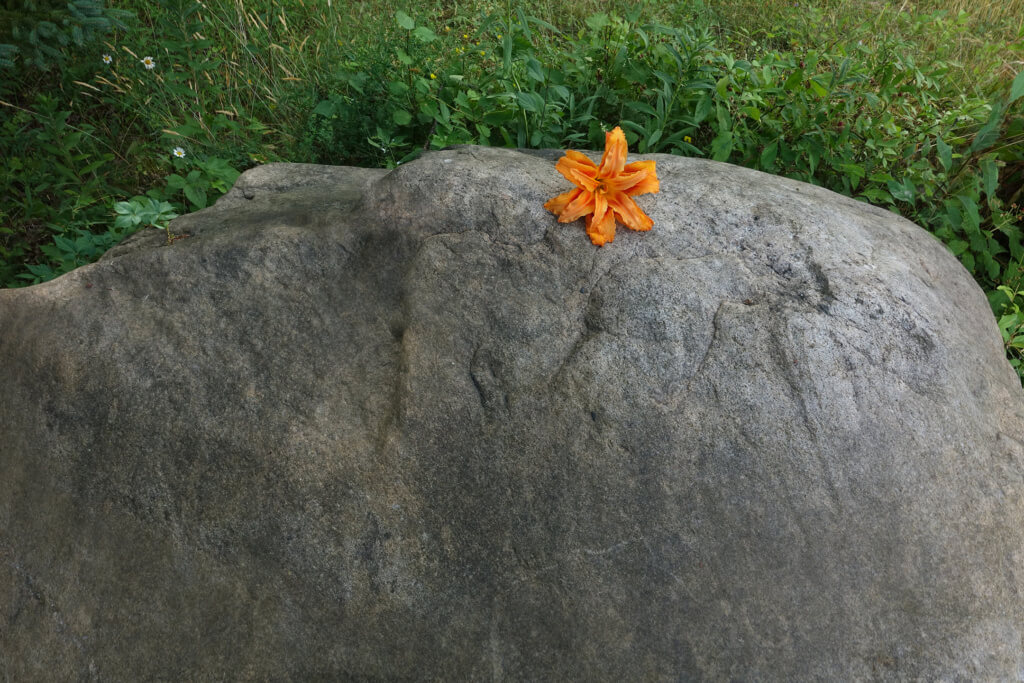 “Another boulder,” I hooted, as Excavator #5 dislodged a large mud-covered rock. That made four. Four boulders now sat in my yard. Solid. Substantial. They would outlast me by eons, hanging out on this land forever. Always.
“Another boulder,” I hooted, as Excavator #5 dislodged a large mud-covered rock. That made four. Four boulders now sat in my yard. Solid. Substantial. They would outlast me by eons, hanging out on this land forever. Always.
If a stone in Central New York could tell its story, it would reveal that millions of years ago it was detached from its parent rock by weathering and erosion. It was then pushed and dragged by glacial ice, scraping over soil and stone. Sometimes stuck in stream beds, the rock’s rough edges were rounded, worn smooth. Once settled, it sat for ages, being built around or buried, or left alone as forests grew up around it. A rock in New York could be two million years old. This is why each boulder I find, I love.
My biggest boulder had been pulled from the bottom of the pond years ago. By Excavator #4, shortly after my daughter died. The pond was deteriorating. Muskrats. Weeds. Algae. I was trying to save it. Marika and the muskrats were the only ones to swim regularly in the pond. When she died, I had told people, “I feel like frozen mud, like a heavy lifeless rock.” And then the excavator found the Pond Boulder.
The Pond Boulder must have first been unearthed back in 1998 when Excavator #3 dug the pond and then left the heavy nuisance he found at the bottom. My third pond. Built with my second husband, by the third excavator. It was my third home on the same land. Nothing lasts forever.
For many summers the Pond Boulder sat as children swam above, kicking and splashing on pink Styrofoam noodles. Years later the huge rock, fished out by Excavator #4, was rolled to the base of a nearby tree. And last week Excavator #5 bunched all the boulders together into a kind of giant rock garden. My boulders. Like I could ever own them. Or hold on to anything in this world.
“Come see my boulders,” I said to the friend who planted daylilies in my yard in June. “And will you look at the lilies? They’re not doing so well in this drought.”
“They only bloom for a day,” she said, watching me pick off shrivels of spent blossoms. “That’s why they’re called day-lilies.”
What lasts? What can you count on to be there when the world as you know and love it is washed away?